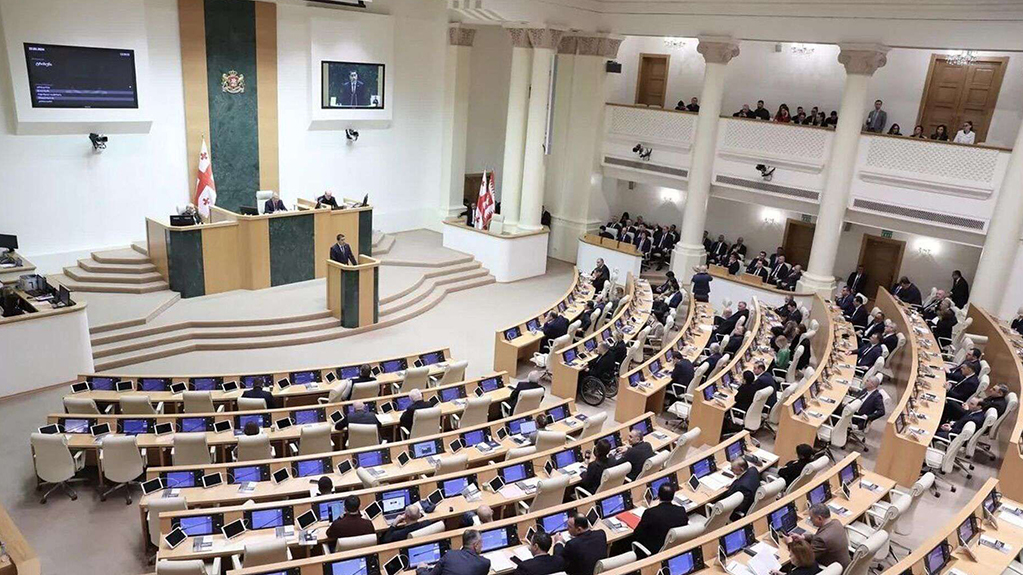"Until the dispute proceeds to the Constitutional Court, Parliament cannot assert its authority," writes constitutionalist Vakhushti Menabde after it was announced that President Salome Zourabichvili will file a lawsuit with the Constitutional Court concerning the election results.
News
President Zourabichvili announced at a briefing on November 18 that the secrecy and universality of voting were violated during the parliamentary elections, thereby neglecting the electoral rights of immigrants. Citing these breaches of constitutional principles, the President plans to file a constitutional lawsuit on November 19.
Under Article 36 of the Law On the Constitutional Court, the President is authorized to file a constitutional lawsuit challenging the constitutionality of electoral norms and the elections conducted under those norms. This must be done within three days of the publication of the election results, which, in this case, is by November 19.
According to Vakhushti Menabde, the plaintiff may argue that the electoral legislation and its interpretation - on the basis of which the city and appellate courts dismissed the Georgian Lawyers Association's claim regarding the violation of vote secrecy - contradict the constitutionally protected right to vote. Specifically, they infringe on at least two of its five components: the secrecy of voting and the free expression of will.
“The President also highlighted the principle of universal suffrage in the context of immigrants’ voting rights. Consequently, the plaintiff may request the annulment of the norms regulating the elections, as well as the annulment of the electronic component of the election results. This is because the contested norms and their interpretation by the general courts had a significant and decisive impact on the election outcome, and without them, the results would have been different. In effect, this would lead to the elections being declared invalid and re-elections being held,” explained Vakhushti Menabde.
The Constitutional Court must consider the President's lawsuit within 30 days. However, it is unlikely that the dispute initiated in the Constitutional Court will be resolved by the time Parliament convenes on November 25.
“By the time Parliament meets, about a week will have passed since the filing of the lawsuit. In this short period, the Court will not be able to first determine the admissibility of the case and then consider and decide on the merits of the lawsuit. This process will take several weeks. Until the constitutional matter is resolved, Parliament cannot recognize its own authority. According to the regulations, it does not have discretion in this matter,” the constitutionalist notes.
On November 16, the Central Election Commission of Georgia approved the summary protocol of the parliamentary elections, according to which Georgian Dream secured 89 mandates in the 11th convocation of Parliament, while the opposition obtained 61. Prime Minister Irakli Kobakhidze announced that Parliament would convene on November 25.
According to parliamentary regulations, the Parliament acquires full powers once 2/3 of its full composition - 100 members - have had their authority recognized. At that point, the powers of the previous convocation of Parliament cease.
“At the first session of Parliament, a temporary mandate commission was formed. This commission reviews the documents submitted by the CEC and prepares a report for Parliament. Based on this report, a list of deputies whose authority must be recognized by the highest representative body is compiled. This list will exclude individuals whose election as deputies has been legally challenged in either the Constitutional Court or common courts. For Parliament to recognize its authority, the list must include at least 100 deputies. If fewer than 100 deputies are authorized, the plenary session is canceled and rescheduled once it becomes possible to meet this requirement,” explains Vakhushti Menabde.
According to the law, a lawsuit challenging the constitutionality of election norms and the elections conducted under these norms may be filed by at least one-fifth of Parliament's members (30 deputies) or the Public Defender.















